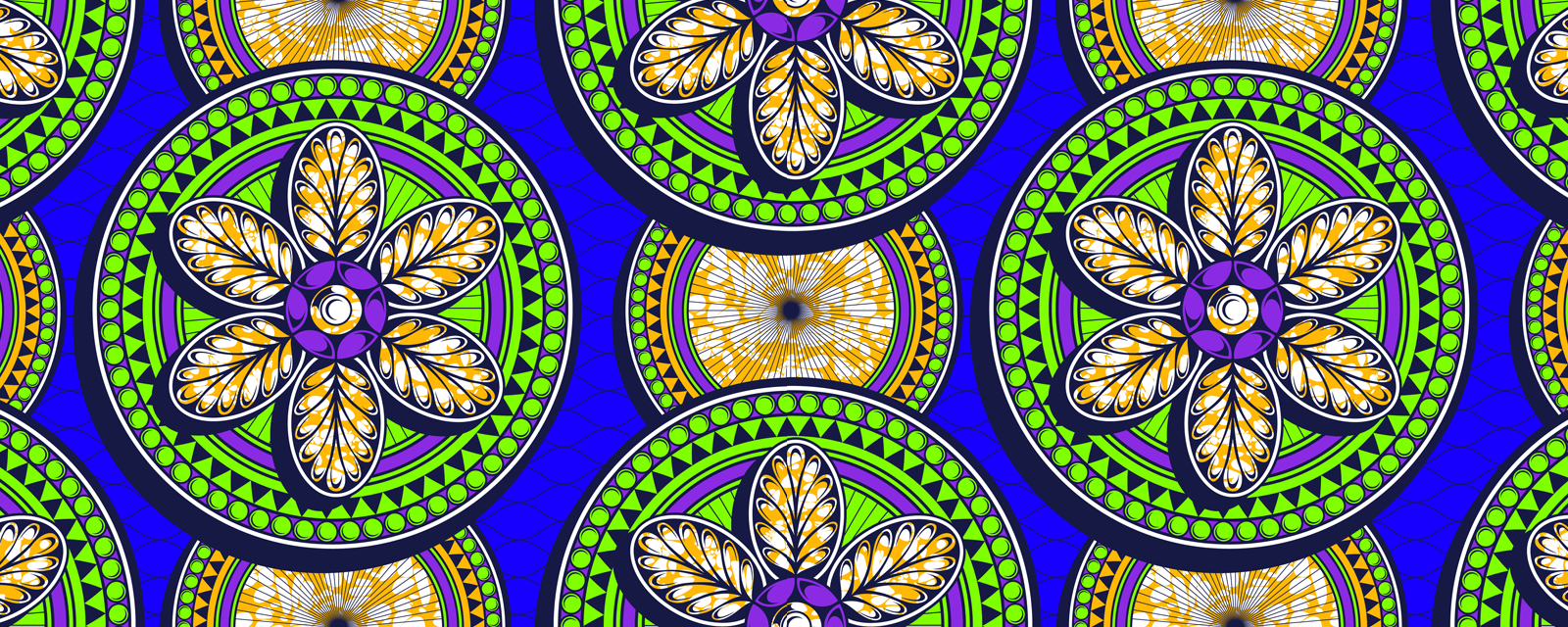My thanks to Dele A Sonubi for this translation into English of a poem from the verses of the Yorùbá religious corpus, Odù Ifá.
Òrúnmìlà is the Yorùbá sage from whom the Ifá corpus originates and in this Odù he receives instruction from Ọba’lúayé, the “King of the World”, one of the Yorùbá pantheon of gods.
The name Ọba’lúayé is a shortening of Ọba Olú Ayé (Ọba: King; Olú: Lord; Ayé: the World). Shrines to this Òrìṣà are commonly found near forests, with rituals in his honour cultivating a serene atmosphere and sense of awe. However, Ọba’lúayé is also associated with sickness, fevers, infectious diseases as well as the medicines that cure these afflictions. By his nature Ọba’lúayé is always close to Iku, the personification of death. See Alajire, God of Suffering for another poem referencing this Òrìṣà under a different name.
It has been said of Ọba’lúayé that “When we come to earth it is because he permits our arrival, and it is because of him we merge with the earth when we depart.” (1)
Some Yorùbá myths describe Òrúnmìlà as a historical figure who lived around 500 B.C., but in other myths he is deified as a spiritual being who came from heaven to teach mankind the secrets of the cosmos through Ifá. The following Odù describes Òrúnmìlà consulting Ifá before making the journey to Earth and receiving instruction from Ọba’lúayé as to the sacrifices he should make to ensure that his path is not obstructed by the negative supernatural forces that he might encounter in the World.
Make Way For Me To Pass
“Make way for me to pass, make way,
Be there wizards that are ahead of my way today, make way for me to pass,
Be there witches that are ahead of my way today, make way for me to pass,
Be there daemons that are ahead of my way today, make way for me to pass.”
Ifá divination was thus performed for Òrúnmìlà,
When he planned a journey to the Earth,
Ọba’lúayé instructed him to make sacrifices,
So that the pathways would be free and accessible for him.
He was mandated to follow the instructions and utilize the proper and symbolic items for the sacrifice.
So that his sacrifices would be fruitful and well received!
He was instructed to use — Dry Fish,
Because pathways are never sealed off for the fish in water,
He was instructed to use — A Dried Laughing Dove,
Because the sky is never jammed for birds to fly freely,
Ọba’lúayé instructed him to use — Mashed-Bean Pudding,
Because mashed-bean pudding is the favorite meal of the supernatural ones;
those who kill without making any physical contact,
He was instructed to use — A Day-Old Chick,
Because it is the summoner of the witches,
He was instructed to use — A Black He-Goat,
Because black He-Goat is a key ritual material used by witches during initiations,
He was to use — Three, Three-Lobed Kolanuts,
Because it is the object used to placate the elders — the initiates, the earth spirits, and the forest daemons — who violently shake the forest to its very foundations.
Òrúnmìlà acknowledged that he had made these sacrifices; may they be fruitful and well received!
Ọba’lúayé then instructed Òrúnmìlà, to proceed on his planned trip while chanting:
“Make way for me to pass, make way,
Be there wizards along my way today, make way for me to pass,
Be there witches along my way today, make way for me to pass,
Be there daemons along my way today, make way for me to pass.”
Here is the same verse in the original Yorùbá.
Yà’gò Lónà, Yà’gò Lónà
“Yà’gò lónà, Yà’gò lónà,
Oshó lóó n be ní iwájú mi lénìí, Yà’gò lónà,
Àjé lóó n be ní iwájú mi lénìí, Yà’gò lónà
Ebora lóó n be ní iwájú mi lénìí, Yà’gò lónà.”
L’ódífá fún Òrúnmìlà,
l’ójó tó n bò l’óde ayé,
Ọba’lúayé ní kó rú’bo,
k’ónà ó lè là.
Wóní ní kó lo àwon òun ètùtù,
kí ebo ó le tú, kí ebo ó le gbà.
Wóní kó lo, — Eja Gbígbe,
Nítorí ònà kìí dí f’éja nínú ibú,
Wóní kó lo — Eye Òdèré Kókò Gbígbe,
Nítorí ojú ònà kìí dí f’éye lójú òrun,
Ọba’lúayé ní kó fi — Èkuru Rú’Bo,
Nítorí, èkuru, l’oúnje àwon apa’ni máyo’dà,
Wóní kó lo — Òròmo’dìe,
Nítorí òròmo’dìe l’olùpè àwon eleye
Wóní kó lo — Òbúko dúdú,
Nítorí òbúko dúdú ni awo àwon òsòròngà,
Wóní kó lo — Obì àbàtà méta,
Nítorí obì àbàtà ni ètùtù f’áwon àgbà; àwon awo àti àwon irúmalè tí n mí igbó kìji kìji.
Òrúnmìlà wá ní óhun ti rú’bo, k’ébo ó tùbà, k’ébo ó tùse!
Ọba’lúayé wá ní tó bá n lo, kó má a wípé:
“Yà’gò lónà, Yà’gò lónà,
Oshó, ló n be ní iwájú mi lénìí, Yà’gò lónà,
Àjé ló n be ní iwájú mi lénìí, Yà’gò lónà,
Ebora ló n be ní iwájú mi lénìí, Yà’gò lónà.”
Translation by Dele A Sonubi
from the Odù Ifá.
Bio
‘Délé A Sónúbi is a writer based in Lagos, Nigeria. He learned the art of philosophy from Professor Sophie B. Olúwolé who held a chair on African Philosophy. He researches mostly on Yorùbá indigenous drive, particularly the Yorùbá religion, oral legacies, and socialization principles through Yorùbá culture and its practices. He is utterly flabbergasted and fascinated by the sheer sagacity of the words and proverbs in the Yorùbá language, particularly when they are translated from Yorùbá to English. As a result, he is always eager to engage in exchanges over the enhanced meaning of Yorùbá phrases and world views.
Footnotes
- Ifá: A Forest of Mystery, by Nicholaj de Mattos Frisvold, Scarlet Imprint (Sept. 2015).

